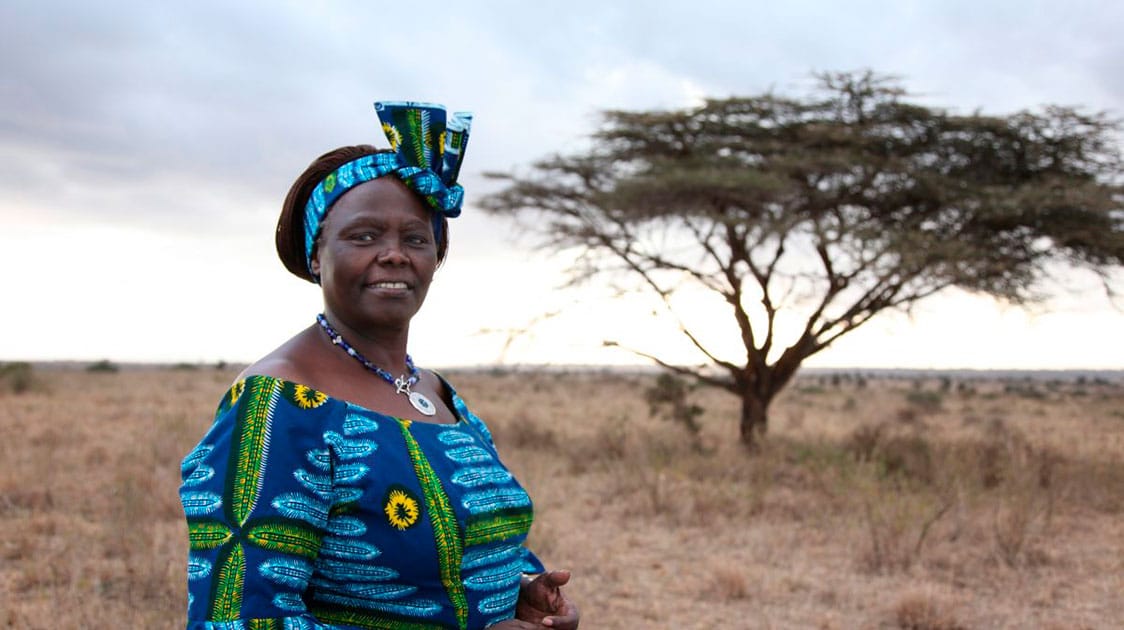March is known as Women’s History Month. This month is dedicated to highlighting the contributions of women to events in history and contemporary society. Many famous women in history contributed to society, such as Amelia Earhart, Diana (Princess of Wales), Loretta Lynn, and Dolly Parton, to name a few. The list goes on and on, to the point that some women have disappeared into history such as Wangari Maathai. This article focuses on her life and the contributions that she made to her country, along with the world.
Wangari Maathai was a Kenyan environmental activist who founded the Green Belt Movement in the 1970s seeking to promote environmental conservation in Kenya and Africa. She became the first African woman to receive the Nobel Peace Prize in 2004 for “her contributions to sustainable development, democracy, and peace.” She was born on April 1, 1940, in the Nyeri District in the central highlands of Kenya, along with being a member of the Kikuyu, which is one of the most populous tribes in Kenya. Wangari attended a Catholic Boarding School when she was 11, and ended up becoming a Catholic which was somewhat common during her time. The Mau Mau Uprising also occurred during her early life, which sought to achieve Kenyan independence from the British. She was protected from the violence since she was attending boarding school.
During her early adult life, she gained a scholarship in 1960 to study in the US. She gained a Master’s degree in biology from the University of Pittsburgh, then later studied for a doctorate at the University of Munich. In 1969, she returned to Nairobi where she became the first East African woman to receive a Ph.D. in veterinary anatomy. She was also elected chairman of the National Council of Women of Kenya (NCWK), holding the position until she retired in 1987. The National Council of Women of Kenya was a collection of women’s groups that helped their country. She died in 2011 from complications arising from Ovarian cancer.
When Wangari was an environmentalist, she felt protecting the environment would prevent many of these listed economic and social problems. Deforestation which was causing landslides and more frequent droughts, along with poor harvests and lack of rainwater, exacerbated inter-tribal conflict as people were forced to fight for meager resources. When her husband became an MP in 1974, she sought to support his promises to find work for the rising number of unemployed. This was when she made her first attempt to create a foundation for planting trees. A lack of money limited its initial success, but her efforts were rewarded with gaining a trip to the 1976 UN Conference on human settlements. The 1976 UN Conference was the leverage that she needed to lead a movement to plant trees throughout Kenya, which was called the Green Belt Movement. This would later become a prominent environmental organization supporting conservation and tree planting across Africa.
A quote that stood out to me while researching Wangari was, “I don’t really know why I care so much. I just have something inside me that tells me that there is a problem, and I have got to do something about it. I think that is what I would call the God in me. All of us have a God in us, and that God is the spirit that unites all life, everything that is on this planet. It must be this voice that is telling me to do something, and I am sure it’s the same voice that is speaking to everybody on this planet — at least everybody who seems to be concerned about the fate of the world, the fate of this planet.” The reason that I included this in my article is that it shows that some people get an inner calling to support causes that they believe in, and in Wangari’s case, she wanted to help the environment and help her country folk. This shows that if you have a calling to support a cause, then do it, because if you believe in it then you would be supporting something that you are passionate about and could also inspire others to help you.



